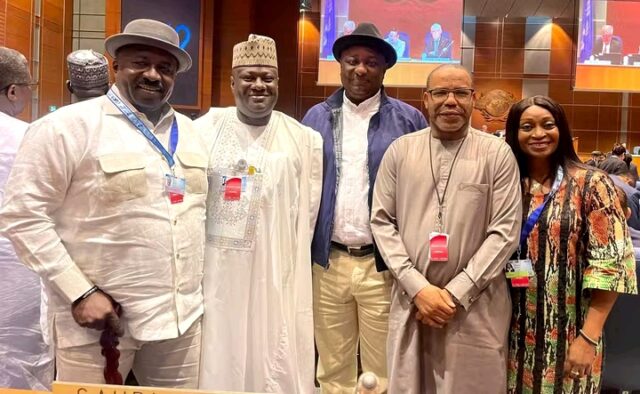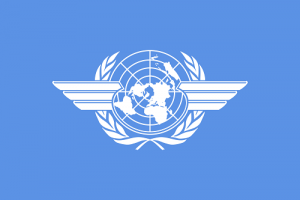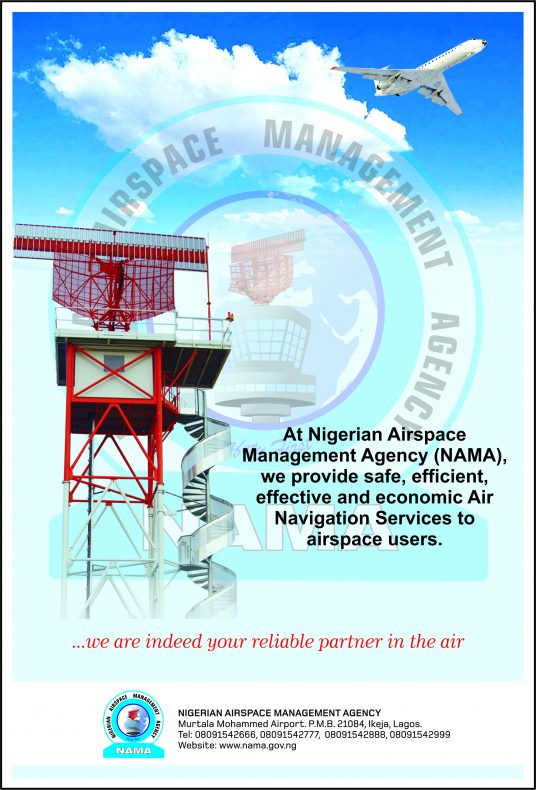

Nigeria has secured re-election into the International Civil Aviation Organisation (ICAO) Council, winning 163 votes to retain its influential seat. The election was conducted during the 42nd ICAO General Assembly, which is currently taking place in Montréal, Canada, with 193 member states in attendance.
The ICAO Council, regarded as the governing body of the United Nations specialised agency for aviation, consists of 36 states elected for a three-year term.
Nigeria retained its seat under Part II of the Council, which is reserved for countries making the largest contributions to international civil aviation facilities.
Nigeria’s candidate, Engr. Mahmoud Ben-Tukur, emerged victorious after a keenly contested election involving 11 other African nations.
Africa’s representation in the ICAO Council under Part II was further strengthened as Egypt and South Africa were also re-elected. The trio remain the continent’s strongest voices at ICAO, allowing them to influence policies on aviation safety, air navigation, and environmental standards.
Other countries that secured seats in this category include Argentina, Colombia, Denmark, India, Mexico, Saudi Arabia, Singapore, Spain, and Switzerland. Their presence underscores the strategic importance of balancing global representation in ICAO decision-making processes.
The General Assembly began on September 23 and is expected to conclude on October 3, 2025. It remains one of the most important gatherings in global aviation, where critical issues ranging from air traffic safety to climate action are discussed and voted upon by member states.
Meanwhile, attention now shifts to the upcoming election into Part III of the ICAO Council, which ensures equitable geographical representation. Angola, Equatorial Guinea, Mali, Morocco, and Uganda are among the African candidates expected to contest in that phase of the election.
Nigeria’s continued membership of the ICAO Council is considered vital for its aviation sector. Since joining ICAO in 1962, the country has consistently held a seat, ensuring it participates actively in shaping international standards that directly affect airlines, regulators, and airports within its borders.
Director General Nigeria Civil Aviation Authority, Captain Chris Najomo, has often stressed the importance of Nigeria maintaining global representation.
He argues that a seat at ICAO allows Nigeria to push for fairer regulations, defend its carriers against unfair competition, and align with best practices that guarantee passenger safety.
In addition, Nigeria’s position provides it with a platform to strengthen bilateral agreements with other ICAO member states. This diplomatic leverage is critical for a country aspiring to be the aviation hub of West Africa.
The Council itself is divided into three parts. Part I is reserved for states of chief importance in air transport, while Part II, where Nigeria sits, recognises states making significant contributions to aviation facilities and services.
Part III ensures geographical balance by including states that may not be globally dominant but whose representation preserves fairness across regions.
For Nigeria, re-election comes at a time when its aviation industry faces both opportunities and challenges. Investments in terminal upgrades, safety oversight improvements, and regional connectivity ambitions demand international collaboration.
Remaining in the ICAO Council gives Nigeria a voice in the very body that establishes the standards underpinning those efforts.
Global aviation is increasingly complex, with debates about carbon emissions, security threats, and emerging technologies such as unmanned aircraft systems.
Therefore, Nigeria’s seat on the ICAO Council is not merely symbolic but a crucial opportunity to align domestic reforms with global best practices.
As the General Assembly proceeds, the outcome of Part III elections will further determine how Africa positions itself in ICAO Council for governance. For Nigeria, however, its 163-vote victory reaffirms the trust of the international community and secures another three years of influence in the heart of global aviation decision-making.





















